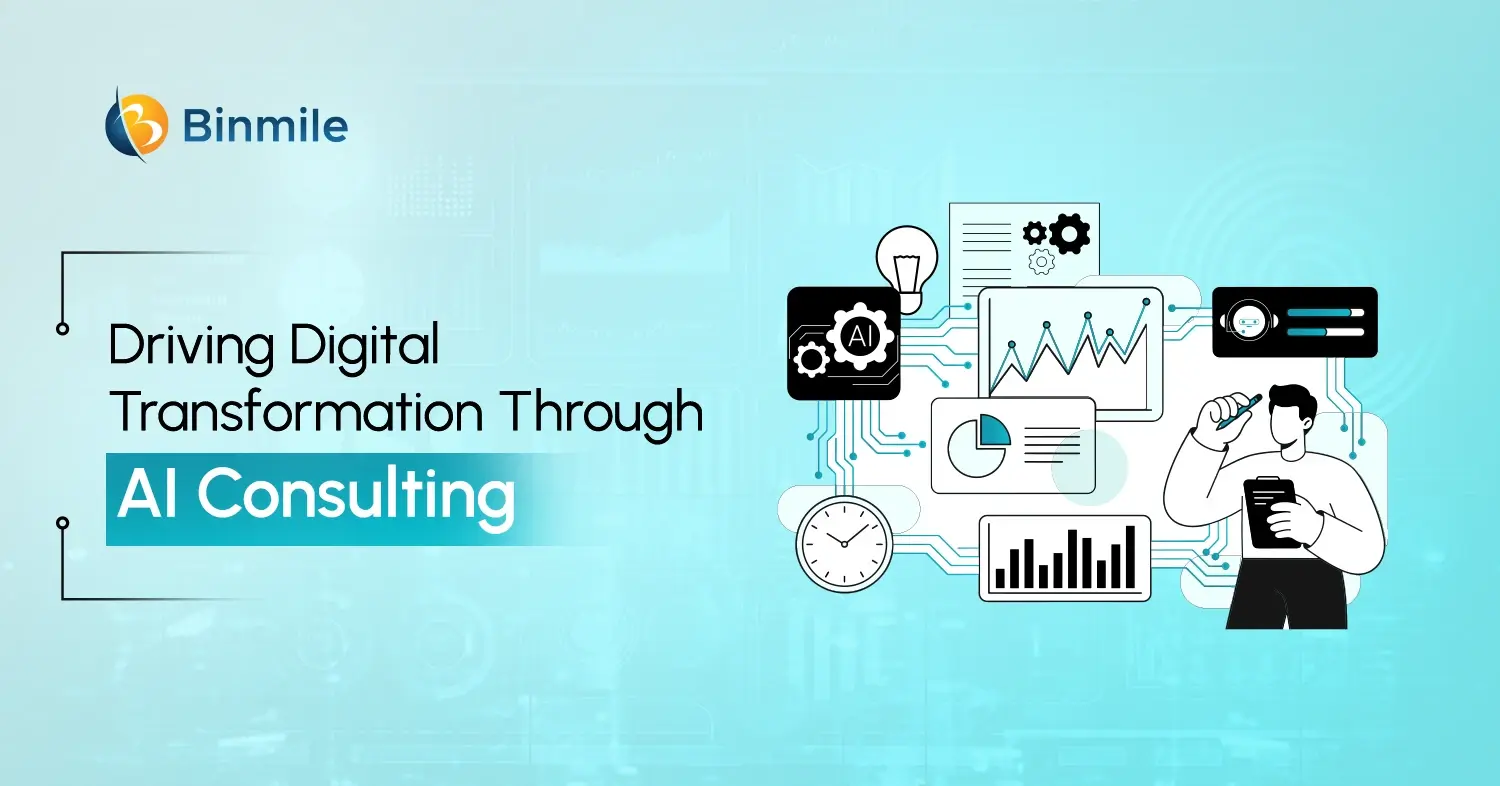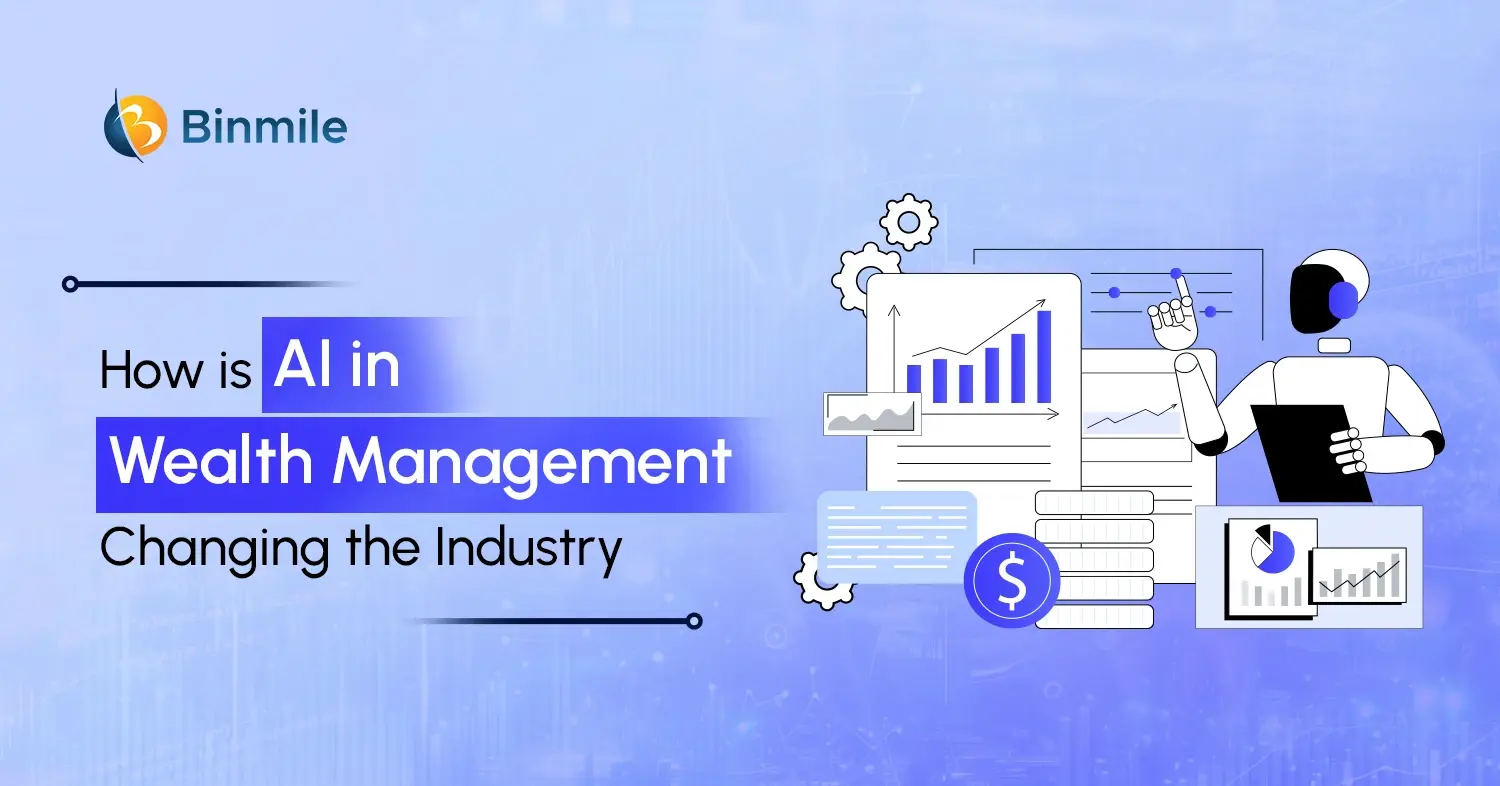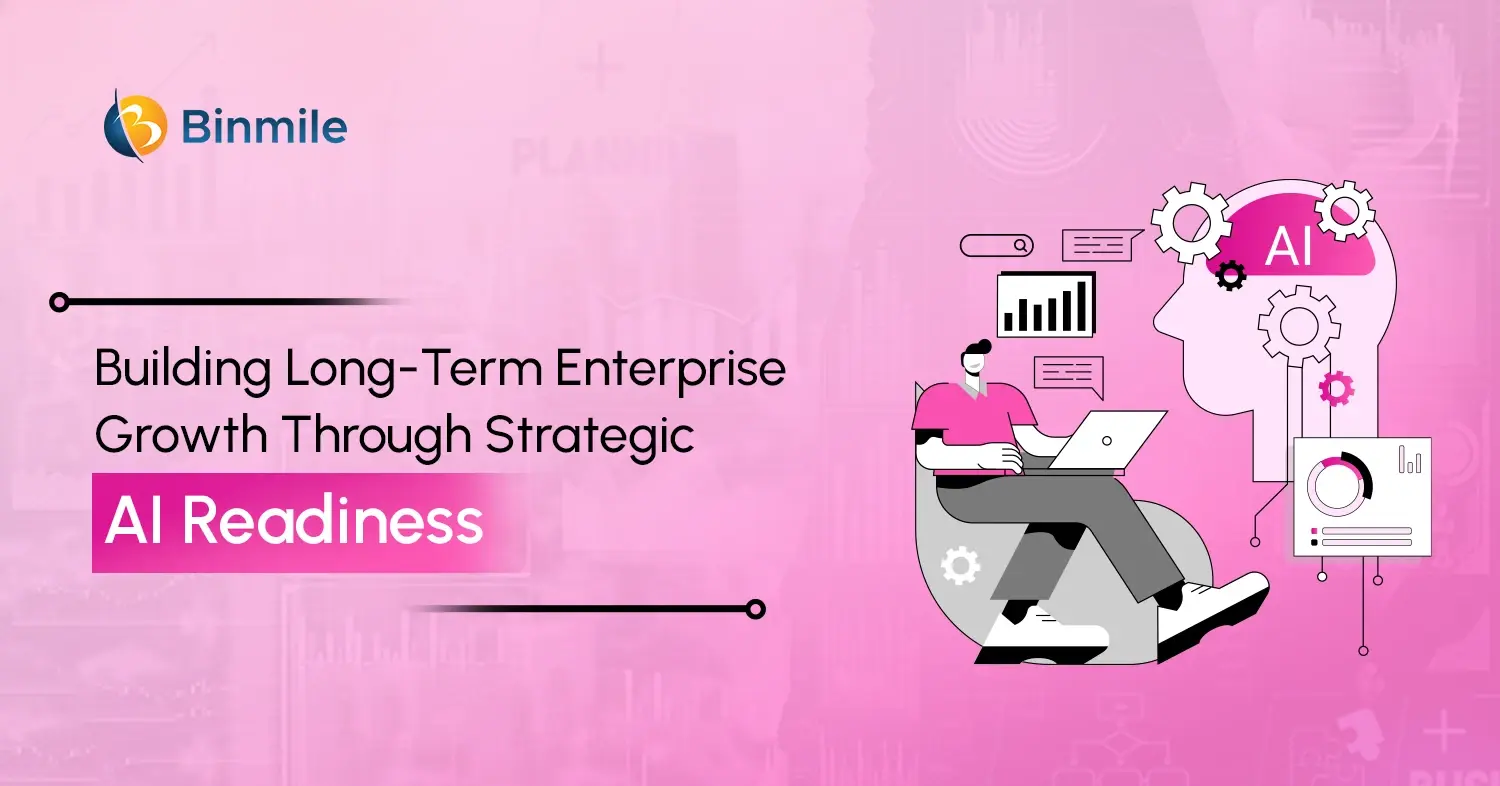AI is no longer a concept, but a technology that has been boosting the productivity and efficiency of a large number of organizations for some time. Just imagine a team of invisible digital strategists tirelessly analyzing data, personalizing customer interactions, and taking your business to a new level of efficiency. That’s exactly what AI agents do in today’s business world. They are the superheroes of the Artificial Intelligence era that have the ability to transform the way companies operate. These agents don’t come in handy to just automate tasks but also redefine the approach to deal with business challenges. You can treat them as unseen partners in decision-making that provides in-depth insights to reshape industries and customer experiences.
In this article, you will learn how a personal assistant who never sleeps, never gets exhausted, and can manage loads of tasks on its own can prove to be a game-changer for your business. From streamlining processes to improving customer interactions, AI agents are cutting-edge tools that contribute to business intelligence and innovation.
What are AI Agents?

AI agents are software programs that can interact with their environment, gather data, and use that information to carry out self-determined tasks to achieve certain goals. It is humans that set goals, but an AI-powered agent selects the best action needed to perform to accomplish those goals. Take, for instance, a customer support AI agent that wants to address consumer queries. The agent will automatically fire various questions at customers, find information in internal documents, and provide a solution. Based on the response received from consumers, it decides if it can sort out the query itself or transfer it to a real human.
Now that you have understood the basics of AI agent, you must know that as per an India and US-based market research and consulting company, the AI agents market size worldwide was valued at USD 3.86 billion in 2023. Not just that! This number is predicted to increase at a CAGR of 45.1% between 2024 and 2030, indicating the need to invest in this field as soon as you can.
How Does This AI Agents Technology Work?
AI Agents Technology works by facilitating and automating complicated tasks. Most autonomous agents stick to a specific workflow when working on assigned tasks.
1. Determine Goals
According to a software development company, the AI agent gets a particular goal or instruction from the user. The agent uses that goal to plan tasks that make the end result relevant and useful to the user. Then, it divides the goal into several bite-sized actionable tasks. To attain that goal, the agent executes those tasks depending on given orders or conditions.
2. Collect Information
AI agents need data to work on tasks that they have planned beforehand. A case in point here is that the agent must fetch conversation logs to understand and analyze buyer sentiments. In some cases, the AI agent can access the internet as well to search for and retrieve the information they need. In a few applications, an intelligent agent can communicate with the rest of the agents or ML models to access or exchange information.
3. Implement Tasks
With enough data at their disposal, the most powerful AI assistant strategically implements the assigned task. Post it achieves a task, the AI agent-cum-assistant eliminates it from the list and moves on to the next one. After task completion, the agent assesses if it has accomplished the predetermined goal by asking for external feedback and checking its own logs. While this process is going on, the agent might create and work on more tasks to accomplish the end result.
Importance of AI Agents in Business
AI agents or LLM-powered apps are becoming increasingly important in modern business due to their potential to automate repetitive tasks, analyze huge chunks of data, and offer customized services. For those who are not familiar with LLM, it stands for Large Language Model, which is a type of AI program that can identify and generate text, among other tasks.
A bunch of solid benefits of such agents include:
- Task Automation: They manage various tasks simultaneously, optimizing operational efficiency and driving down human workload.
- Enhanced User Experience: For both consumer service and employee engagement, AI agents offer personalized suggestions, immediate query responses, and consistent service quality.
- Predictive Analysis: AI-based agents analyze patterns and forecast trends, rendering valuable insights for strategic decisions.
- 24/7 Operation: AI agents work without fatigue, giving consistent service round the clock.
As the benefits of AI Agents technology become more evident, organizations are looking for ways to implement these agents into their operations.
5 Key Benefits of Using AI Agents for Businesses
The integration of AI agents into your business operations can offer several pros that can heavily impact the bottom line of a company. These agents are revolutionizing business operations, right from operational efficiencies to improved buyer experiences. It also optimizes the way businesses compete and succeed in the novel marketplace. Below you can take a comprehensive look at the main benefits of deploying AI agents in the business environment.

1. Effective Personalization
The ability to give personalized experiences to customers is the result of artificial intelligence agents impact. Artificial intelligence agents can customize recommendations, responses, and services to personal needs by analyzing consumers’ data, preferences, and previous interactions. This type of personalization not only improves patron satisfaction but also encourages loyalty and repeat business, as consumers feel they are being valued and understood.
2. Smooth and Cost-Effective Scalability
AI agents are highly scalable. They can manage an increasing number of tasks or interactions without a significant increase in resources or infrastructure. This scalability turns out to be useful in many situations, such as:
- Peak business periods
- Product launches
- Market expansions
These are the instances when the demand for certain resources can grow sharply.
3. Improved Efficiency
When it comes to managing repetitive and routine tasks effortlessly, the most powerful AI assistant emerges as the clear winner. A lot of tasks, such as customer inquiries, data entry, scheduling, and basic analysis consume a huge amount of time and human resources, which can be quickly performed by artificial intelligence agents. By automating all these tasks, organizations can deploy their human resources to more strategic and creative work, improving overall productivity and innovation to a great extent.
4. Data-Driven Insights
AI agents driving innovation to an extent that a modern agent can collect and process a vast amount of data easily and efficiently. Resultantly, companies that use artificial intelligence agents can get deeper insights into market trends, consumer behavior, and operational efficiencies. These insights can enable businesses to make more informed decisions, change their strategies, and stay ahead of their rivals.
5. Cost savings
The experts of a leading Artificial Intelligence development company firmly believe that utilizing AI-based agents can help save a significant amount of costs. By minimizing the need for a considerable workforce to manage routine tasks, organizations can save on salaries, training, and other expenses. In addition to that, an AI agent can help enhance processes and improve efficiencies, further lowering operational costs big time.
Ready to harness the power of AI agents for your business? Let our experts help you implement cutting-edge AI solutions tailored to your needs. Explore our AI development services and transform your business!

How to Implement AI Agents in a Business?
Implementing AI agents in a business is a strategic process that necessitates careful planning and execution. This process includes various steps, including discovering business needs, incorporating artificial intelligence agents with current systems, and training AI models.
1: Discovering Business Needs
- Look for specific needs, goals, and challenges where AI can provide the maximum benefit. This involves a comprehensive understanding of the organization’s goal and areas ready for AI-powered enhancement.
- Set up clear goals for AI agents and take scalability into account for future growth. Develop agents to adapt to changing organizational needs, making sure that they remain relevant and effective as the business evolves.
2: Establishing Data Pipelines and Fine-tuning
- For AI agents, garner diverse, relevant data depicting possible scenarios. For Large Language Model applications, organize high-quality text data or make the most of pre-trained models. In both cases, make sure of complete coverage of use cases.
- For AI agents, put processed data into algorithms, observing learning progress. For Large Language Models, optimize pre-trained models on specific tasks or domains, modifying for targeted outputs and performance.
- Iterate and fine-tune agents and LLMs, altering parameters or reevaluating data. For LLMs, this may require prompt engineering and calibration of model responses to ensure relevance and preciseness.
3: Building the Application
- Create the application UI and incorporate the trained AI agent or tweaked LLM. Make sure of smooth communication between the model and the rest of the system components. Several low-code/no-code AI agent development platforms help companies start Artificial Intelligence development quickly.
- Adopt safeguards, including content filtering for Large Language Models and in-depth testing to make sure that the application meets safety, performance, and ethical standards prior to deployment.
4: Integration with Current Systems
- Make sure that AI agents can interact effectively with existing infrastructure, software, and databases. This may include data conversion processes to allow smooth interaction between AI systems and current platforms.
- Put data compatibility, user-friendly UIs, and powerful security measures on top priority. Implement AI-based agents that align with data protection regulations and feature robust safeguards against prospective breaches or unauthorized access.
The process of developing AI agents is complicated and needs careful planning and execution. However, if one builds it in the right fashion, AI-powered agents can emerge as a solid tool for business growth and success.
Experience the potential of AI agents with our custom AI development services! From strategy to implementation, we provide end-to-end solutions for your business. Embark on your AI journey today.

How Will AI Agents Shape the Future for Innovation?
Rapid innovation simplified by AI-driven agents provides entrepreneurs and innovators with the tools to create new solutions and make them available in the market quickly. By automating repeated tasks and analyzing a sizeable amount of data promptly, the AI agent enables companies to experiment with new ideas at an increased pace, minimize time to market, and respond to consumer needs and market changes immediately by leveraging AI to improve customer experience.
AI agents driving innovation are extremely important for staying competitive in an ever-evolving business environment. What else? The AI agent empowers organizations to adjust current products to easily meet changing technological trends and customer expectations. They also offer a base for scalable growth, allowing organizations to grow their operations without upsurging their overhead costs. Moreover, the utilization of AI-backed agents in iterative design and development processes improves product development, enabling continuous improvements depending on user feedback and behavior analysis.
Examples of AI Agents in Artificial Intelligence
The world of artificial intelligence is fraught with diverse and innovative examples of AI agents, each of them developed to do specific jobs and solve unique challenges. Let’s take a look at some examples to learn how AI-based agents are making a significant impact in multiple departments:
1: Intelligent Personal Assistants

The most powerful AI assistant have become more common in our daily lives these days. These tech-driven assistants, powered by AI, are like friendly neighbors who perceive our needs and react accordingly. Take, for instance, Alexa, Siri, and Google Assistant. They are less of any software and more of digital friends. They remind us of imperative appointments, respond to our curious queries, keep our schedules on track, and also handle our smart homes. What’s even more exciting about these digital assistants is that they learn about us as we communicate with them, making their helping approach more personalized and valuable over time.
2: Fraud Detection Agents

Generative Artificial Intelligence agents play a crucial role in identifying and preventing fraudulent activities in the banking sector. Leveraging machine learning for fraud detection, these agents go through transaction patterns to discover anomalies that could be signs of fraudulent behavior. Banking institutions and credit card companies take advantage of these artificial intelligence agents to track account activity, highlighting abnormal transactions for further examination and thereby safeguarding consumers from potential fraud. The ability of continuous learning of these agents makes them increasingly effective in adjusting to new methods of fraud, offering an important layer of security in financial transactions.
3: Autonomous Robots

When it comes to managing physical tasks, robotic helpers are worthy resources. These individual machines excel in various settings, doing everything from household work to heavy industrial jobs. Imagine those smart vacuum cleaners that pass through every nook and cranny of our homes, keeping the environment clean without a hitch. Apart from that, you can also think about Amazon’s warehouses, where robots arrange and transport items very efficiently, streamlining the entire operation. These robots are not just machines, but they also contain advanced sensors and AI smarts that enable them to grasp their surroundings, make smart decisions, and perform tasks with hardly any human help required.
On a Closing Note!
Right from digital assistants to chatbots and self-driving cars, agents in artificial intelligence are transforming how we live and work. It won’t be wrong to say that AI agents are the future, and organizations that fail to embrace these software programs will be left behind.
Binmile is a reputed Artificial Intelligence development company that specializes in AI agent development services to help businesses integrate AI-powered solutions into their systems. We can help you build state-of-the-art agent solutions that will streamline your processes, minimize operational costs, and gain a competitive edge in the market. Speed up for the race to the future and converse with our industry experts to learn how they can assist you in leveraging an AI agent to the fullest for your business.









